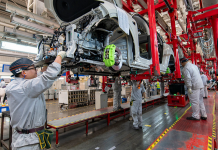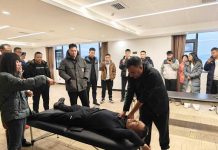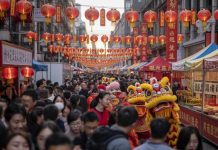BEIJING: A handful of wheat and a bowl of rice mean much to Chinese President Xi Jinping, also general secretary of the Communist Party of China Central Committee and chairman of the Central Military Commission.
Some five decades ago, when he worked in Liangjiahe Village in northwest China’s Shaanxi Province as a farmer, Xi saw how villagers struggled to fill their stomachs.
Local villagers wished for enough chaff to eat so that they no longer had to go hungry, and their dream of having meat on the table once in a while seemed almost impossible to realize, Xi said.
“At that time, I did all kinds of work — reclaiming wasteland, farming, hoeing, herding, hauling coal, mounding and carrying manure,” Xi recalled. In order to enlarge the farmland, he led the villagers in standing barefoot in ice during the winter to clean the dyke foundations.
The experience gave Xi an inspiration that has endured throughout his life. He has always kept the people’s “rice bowl” in mind.
In the early 1980s, Zhengding County in Hebei Province was known as a poor county with a high grain yield. At that time, the country purchased more than 35 million kg of grain annually from the county. After meeting the nation’s annual purchase quota, farmers did not have enough food for themselves and had to buy grain from elsewhere at higher prices.
After he took office in the county, Xi wrote a letter to the country’s top leadership, reporting on the situation. The purchase quota was later lowered by 14 million kg, which largely reduced the burden on farmers.
“We would rather not have the crown of ‘national high-yield county’ and let the people live a good life,” Xi said.
In 2018, Xi inspected Jiansanjiang, an important grain-production base in Heilongjiang Province. In the rice field, Xi talked with farmers about grain production and asked about their livelihoods.
“It is necessary to speed up the development of green agriculture and work to avoid the loss and degradation of black soil,” Xi said. – Agencies






